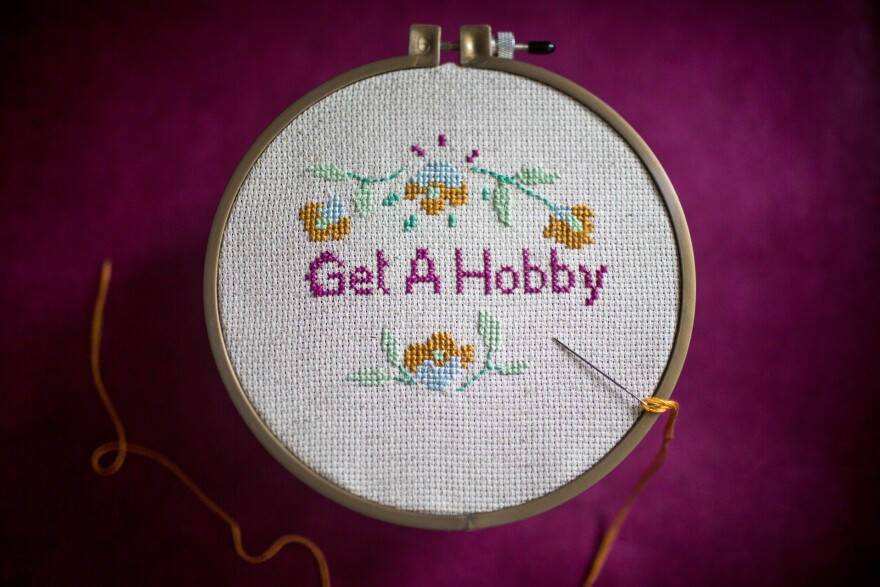In the spring of 2020, shortly after the government-mandated lockdowns to help control the spread of coronavirus, I realized I had no hobby. Everything had become a hustle. As a freelance writer and podcast host, I (Nichole) already pretty much worked from home, but as job opportunities arrived further apart and I had more time on my hands, I knew I needed something more fulfilling in my life.
I decided to return to an old childhood hobby of cross-stitching. My mother had taught me this form of needlecraft, and it made me feel reconnected with her during a time I wasn't sure when I'd see her again. It also helped ease the anxiety I was feeling about current events. When I sat down with my needle and thread, I was focused on counting out stitches and making sure I had the proper colors of embroidery floss. My fears and frustrations quieted, and I found immense pleasure in doing something I knew I'd never monetize.
Fueled by the joy I felt in doing something just for myself, I reached out to three different people with three very different hobbies to ask them for their advice on how to start a hobby.
Marc Castañeda is a knitter. Kareemah Batts is a rock climber. And Thuy Phan creates unique cocktails.
Using their experiences, here are some tips on how to start a hobby:
Remember: Hobbies are good for you!
According to professor Yoshi Iwasaki, chair of Public Health and Recreation at San Jose State University, when we bring meaning to our leisure time, like we can through hobbies, it helps improve our mental health. Other benefits include strengthening our sense of connection, identity, and our autonomy.
Figure out your interests
Create a short list of three to five activities, including two you've never tried before. Phan suggests looking at the patterns of your daily life: "Where do you spend most of your time and energy focused on?" Phan is an avid reader, so she makes cocktails based on the books she's read. Consider how a new hobby could fit into how you currently spend your time.
Research
When you've narrowed your interests down, start collecting information — what are some beginner-friendly projects you could start with? What materials will you need? How much will they cost? You can look online at tutorials and message boards or maybe go into stores that sell the necessary supplies and ask someone more knowledgeable for advice.
Have no expectations
Chances are you won't be an expert the first time you try your new hobby. You won't be the best at it, but you also won't be the worst. Castañeda says, "The biggest advice I learned was just being patient with myself. I think I just thought I would be good at a craft I picked up, like instantly." Allow yourself room to grow, and when you finally reach the goal level you have in mind, you can look back and be proud of the progress you've made.
Give yourself permission to fail and to take breaks
Becoming frustrated with learning something new is part of the process, so it's okay to take a step back to take a breather. "I think people think that if you have an interest or a hobby...you should always feel 150% for it. And it's actually OK to step back, you know, so that you can remind yourself why you're in love with it," Batts says.
Once you've moved through each of these steps, you're ready to go. Good luck and happy hobbying!
The podcast version of this episode was produced by Audrey Nguyen. Engineering support from Alex Drewenskus and Josh Newell.
We'd love to hear from you. Leave us a voicemail at 202-216-9823, or email us at LifeKit@npr.org.
For more Life Kit, subscribe to our newsletter.
Copyright 2023 NPR. To see more, visit https://www.npr.org.



